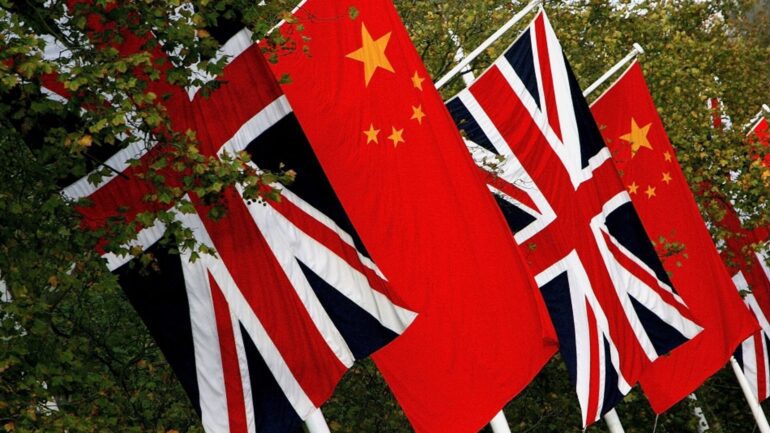TL;DR:
- Britain extends an invitation to China for its global AI summit in November.
- Foreign Minister James Cleverly emphasizes the importance of involving leading AI nations to address AI-related risks.
- The summit aims to position Britain as a global leader in AI regulation and will convene governments, tech companies, and academics to discuss AI risks and benefits.
- Topics to be covered include AI’s impact on biosecurity and its potential for public good, particularly in safer transportation.
- Cleverly advocates for deeper engagement with China, highlighting the need for collaboration on climate change and economic stability.
- Concerns arise in Britain about Chinese activities following a parliamentary researcher’s arrest on suspicion of spying for China.
- The Chinese embassy in London has not yet confirmed China’s attendance at the AI summit.
- Tech expert Matt Clifford and former diplomat Jonathan Black are appointed to lead summit preparations.
- British officials seek a balanced approach to AI regulation, contrasting with the EU’s more comprehensive AI Act.
- Clifford hopes the UK summit will influence future international debates on AI regulation.
Main AI News:
Britain’s ambitions in the realm of artificial intelligence are taking a global turn as the nation extends an invitation to China for its upcoming AI summit scheduled for November. Foreign Minister James Cleverly emphasized that addressing the risks associated with AI technology necessitates the involvement of all major players in the field.
“We cannot ensure the safety of the UK public in the AI landscape without the active participation of leading AI nations,” Cleverly asserted in a recent statement.
Prime Minister Rishi Sunak’s vision of positioning Britain as a global leader in AI regulation will take center stage at the summit, slated for November 1-2. The event will bring together governments, tech giants, and academic experts to deliberate on the multifaceted risks posed by this transformative technology.
The summit’s agenda encompasses a spectrum of topics, ranging from the potential threat of AI to biosecurity to its utilization for the greater public good, such as enhancing transportation safety.
Cleverly, who recently made history as the highest-ranking British official to visit China in half a decade, has advocated for deeper engagement with Beijing. He underscores the folly of isolating the world’s second-largest economy, highlighting the imperative for Chinese collaboration on issues like climate change and global economic stability.
“Our approach to China is rooted in safeguarding our institutions and critical infrastructure, fostering alliances, and pursuing interests aligned with the UK’s national welfare,” Cleverly remarked.
While London endeavors to strengthen its ties with Beijing, concerns have been mounting in recent weeks regarding Chinese activities within Britain. Revelations of a parliamentary researcher’s arrest on espionage charges for China in March have added a layer of complexity to the bilateral relationship.
The Chinese embassy in London has not yet confirmed China’s participation in the AI summit.
To oversee preparations for the summit, Britain has appointed tech expert Matt Clifford and former senior diplomat Jonathan Black. In contrast to the European Union’s comprehensive AI Act, which is perceived by some as overly restrictive, British government officials are seeking a more balanced and pragmatic approach to regulating AI.
Under the forthcoming EU legislation, organizations employing AI systems classified as “high risk” will be obligated to undergo meticulous risk assessments, maintain transparent activity records, and provide sensitive internal data to authorities upon request.
Matt Clifford expressed his hope that the UK summit would set a precedent for shaping future international discourse on AI regulation.
Conclusion:
The UK’s open invitation to China for its upcoming global AI summit signals a collaborative approach to address the challenges and opportunities of AI technology. This inclusive stance could foster international cooperation and innovation in the AI market, potentially positioning the UK as a hub for balanced and pragmatic AI regulation, in contrast to the EU’s more stringent approach. However, concerns surrounding espionage may cast a shadow on UK-China relations and the tech sector’s future collaborations.

